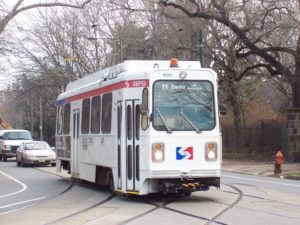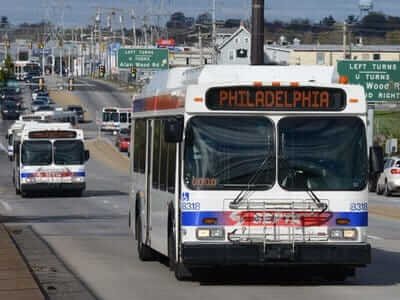
Fatigue safety rules from the Federal Railroad Administration have been a hot topic for the past year following a tragic train accident in New York. The driver was sleep-deprived while operating a Metro-North Railroad train. The engineer took a 30 MPH curve at 82 MPH, causing the train to derail, killing four people and injuring 70 others.
Late in November 2014, Regional Rail engineers requested that SEPTA follow a safety rule that is designed to limit fatigued engineers from working. The Regional Rail engineers submitted their request to federal regulators.
For the past two years, SEPTA has a waiver that has kept them from adhering to this safety rule and recently, they have asked the Federal Railroad Administration to re-issue the waiver. The Brotherhood of Locomotive Engineers and Trainmen has asked federal regulators to deny SEPTA’s request for the waiver extension and to send the issue to a public hearing.
According to the Philadelphia Inquirer, union president Dennis Pierce wrote a letter to the Federal Railroad Administration. His letter stated the following: “The industry has witnessed the inevitable and undesirable outcome that occurs when an operation favors a culture that prioritizes productivity before safety. The recent series of accidents at Metro-North was preceded by a culture that placed productivity ahead of safety policy. SEPTA has taken a similar course on productivity by avoiding compliance.”
The SEPTA Work Week
A typical engineer with SEPTA does not work a 40-hour week like the rest of the city. Instead, most of them work close to 70 hours per week.
There are 200 engineers with SEPTA, with most of them working six days per week for a total of 67 hours per week. Federal laws require that engineers receive two days off every 14 days. In 2012, when the Federal Railroad Administration tightened its rules on service hours, the union did not object to SEPTA requesting the waiver to the safety rule
What Rule is at the Heart of the Matter?
The rule that is being disputed covers the time spent by engineers driving from their home to work at a location that is not their regularly assigned location. The rule from the federal regulators requires that this travel time be booked as time on the job, which means it is paid.
SEPTA received the waiver in 2012 for the rule, which means that they were able to reduce the number of work hours their engineers were on the job.
In their request for the waiver extension, SEPTA wrote the following: The waiver is “in the best interests of the riding public from both a service (more employees available for duty to address service demands) and economic standpoint (reduced labor costs by eliminating a potential need to hire additional employees)….Maintaining tight controls on labor expenses and operating expenses is one way SEPTA manages to fulfill that obligation [to operate efficiently].”
In arguing against an extension of the waiver, the union cited four incidents from August 6, 2014 to October 7, 2014 that involved violations of safety rules by SEPTA engineers. The Federal Railroad Administration launched an investigation into these incidents.
If you or a loved one has been injured in a train accident, contact Jeffrey H. Penneys, Esq. to schedule a consultation. Submit the contact form on the website or call 1-800-Injury-Law and we will contact you within 24 hours to discuss your case.


